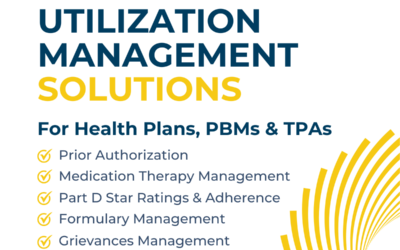In response to escalating concerns voiced by providers and patients regarding delayed and denied care, an increasing number of states are taking decisive steps to impose limitations on prior authorization (PA) requirements. These legislative efforts, reaching beyond federal proposals, signify a pivotal moment in healthcare reform.

New Jersey: Recently, Governor Phil Murphy signed legislation mandating insurance companies to deliver PA decisions within 24 hours for urgent cases and 72 hours for routine matters, setting a groundbreaking precedent.
Washington: Similar to New Jersey, Washington has implemented a law emphasizing the need for expeditious PA decisions, underscoring the nationwide urgency for streamlined authorization processes.
Arkansas introduced “gold cards” designed for providers with a historical approval rate exceeding 90% for prior authorization requests. Additionally, the state implemented a prohibition on prior authorizations for various treatments related to substance use disorder, HIV prevention, and specific ambulance services.
Several states opted for more specific measures. New Mexico, for instance, imposed restrictions on prior authorization for select dental services, while Maine targeted breast pumps. Louisiana, Oregon, and additional states have narrowed precertification requirements, particularly in the context of cancer care.
The momentum is reflected in the National Conference of State Legislatures’ report, indicating over 20 PA bills were enacted in 2023. The American Medical Association reports that about 70 more measures are pending in state capitals. These legislative actions, combined with federal proposals and voluntary steps by health insurance companies, underscore a profound controversy surrounding precertification practices.
“A lot of elected officials are hearing about it and trying to respond,” said Elisabeth Benjamin, vice president of health initiatives at the Community Service Society of New York, emphasizing the widespread impact of these changes. Benjamin served on the New York Health Care Administrative Simplification Workgroup, contributing to recommendations that presented new rules governing prior authorizations in 2021.
Data scarcity and growing complaints underscore the need for adaptive solutions. As the insured population grows, the effectiveness of insurance becomes a critical concern, with technological innovations contributing to a surge in authorization requirements.
Agadia’s PAHub: A Strategic Solution for Evolving Prior Authorization Landscape
As we approach dynamic legislative changes, Agadia’s, leading prior authorization solution, PAHub stands as a transformative tool. While states push for tighter timelines and clearer standards, PAHub ensures compliance and operational efficiency. Additionally, by providing insights into the PA creation process and analyzing PA volume across various dimensions, PAHub becomes an indispensable ally for health plans, PBMs, and TPAs navigating this complex regulatory environment.
PAHub empowers organizations to thrive amidst evolving demands. For those looking to streamline their prior authorization processes and meet the challenges posed by new state limitations, PAHub is the solution that goes beyond compliance – it’s a catalyst for efficiency and adaptability. Contact us today to schedule a live demo.










